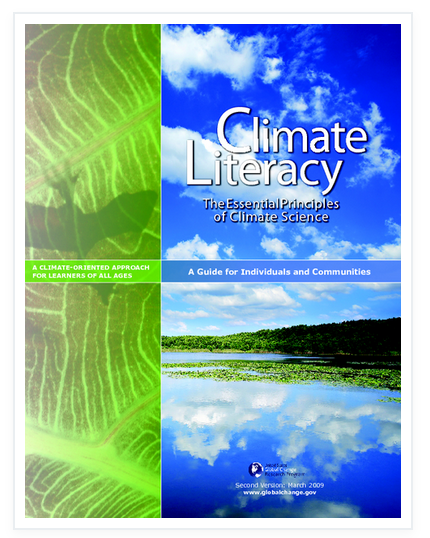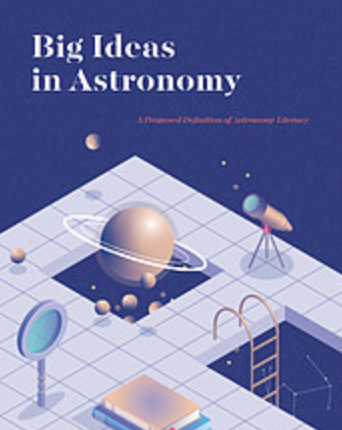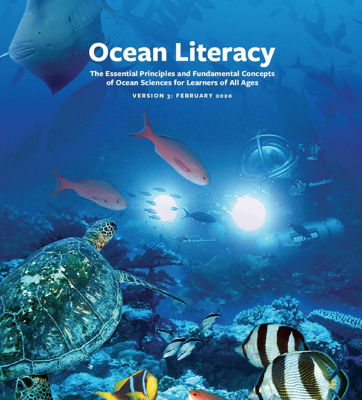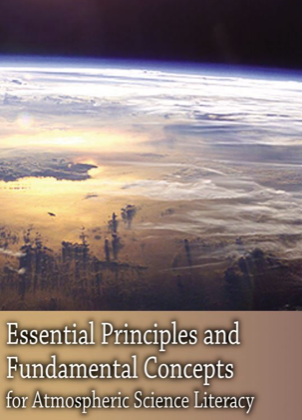Science Literacy
Why is Science Literacy so important? As public policies are driven through the use of science/statistics, can the public make sound choices? Scientific literacy is more than an academic requirement of teachers, it impacts our lives on grand scales - our environment AND our economy.
The publications shown below provide essential principles that everyone should have knowledge in.
 Earth Science Literacy Principles: An Earth Science Literacy Principles Guide covering the nine big Earth Science ideas are available in both English and Spanish. Access the principles here.
Earth Science Literacy Principles: An Earth Science Literacy Principles Guide covering the nine big Earth Science ideas are available in both English and Spanish. Access the principles here.
 Climate Literacy: The Essential Principles of Climate Science provides information that is deemed important for individuals and communities to know and understand about Earth's climate, impacts of climate change, and approaches to adaptation or mitigation. Access the principles here. Check out our Climate Change page for more information and position statements and our Meteorology page for more teaching resources.
Climate Literacy: The Essential Principles of Climate Science provides information that is deemed important for individuals and communities to know and understand about Earth's climate, impacts of climate change, and approaches to adaptation or mitigation. Access the principles here. Check out our Climate Change page for more information and position statements and our Meteorology page for more teaching resources.
 Energy Literacy: Essential Principles and Fundamental Concepts for Energy Education presents concepts that, if understood and applied, will help individuals and communities make informed energy decisions. Access the principles here.
Energy Literacy: Essential Principles and Fundamental Concepts for Energy Education presents concepts that, if understood and applied, will help individuals and communities make informed energy decisions. Access the principles here.
 Big Ideas in Astronomy presents eleven big ideas in this Astronomy literacy booklet. This booklet was commissioned by the International Astronomical Union. Access the ideas here.
Big Ideas in Astronomy presents eleven big ideas in this Astronomy literacy booklet. This booklet was commissioned by the International Astronomical Union. Access the ideas here.
 Ocean Literacy presents seven essential principles of ocean sciences that, if understood and applied, will help individuals make informed and responsible decisions regarding the ocean and its resources. Access the principles here.
Ocean Literacy presents seven essential principles of ocean sciences that, if understood and applied, will help individuals make informed and responsible decisions regarding the ocean and its resources. Access the principles here.
 Atmospheric Science Literacy presents seven essential principles and fundamental concepts of atmospheric science literacy. Access the principles here.
Atmospheric Science Literacy presents seven essential principles and fundamental concepts of atmospheric science literacy. Access the principles here.
 Great Lakes Literacy presents eight essential principles. The principles are meant to educate the public about the Great Lakes to help improve Great Lakes stewardship. Access the principles here.
Great Lakes Literacy presents eight essential principles. The principles are meant to educate the public about the Great Lakes to help improve Great Lakes stewardship. Access the principles here.
